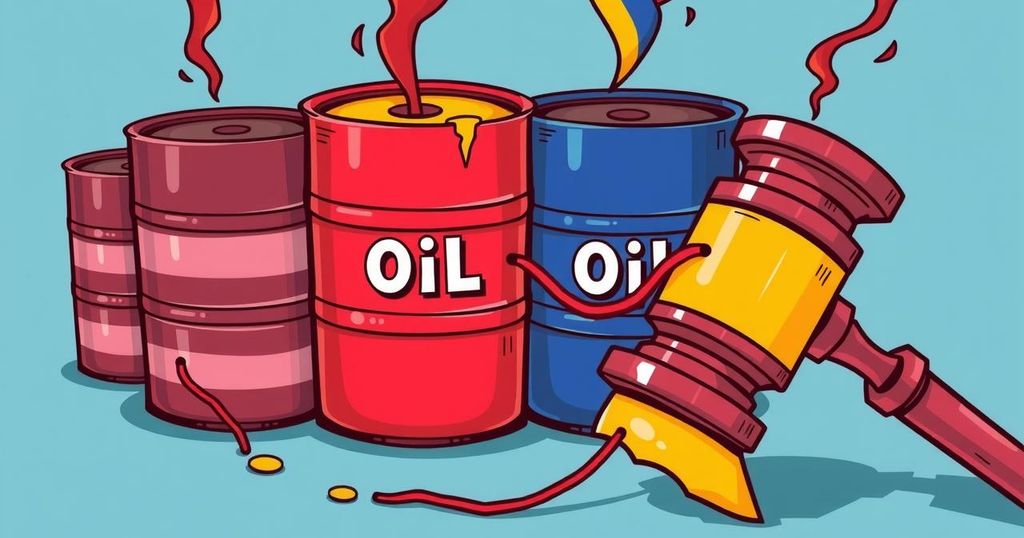Trump Threatens Secondary Tariffs on Russia Over Ukraine Negotiations

President Trump criticized Russia’s role in Ukraine negotiations, threatening secondary tariffs on oil imports if peace talks fail. He indicated tariffs could also apply to Iran regarding nuclear negotiations. Trump’s approach highlights his intent to utilize economic pressure on adversaries, though concerns exist about the enforcement of these tariffs.
President Trump has expressed dissatisfaction with the Russia-Ukraine negotiations, suggesting potential tariffs on nations importing Russian oil if peace talks fail. During an interview on “Meet the Press,” Trump stated he might impose tariffs ranging from 25 to 50 percent on Russia’s oil, emphasizing that this measure could happen swiftly if he deems Russia responsible for obstructing peace efforts.
The former president has a history of advocating for secondary tariffs—taxes on imports from countries buying products from targeted nations. Notably, Trump indicated similar tariffs could apply to Iran if negotiations over its nuclear program flop. His commitment to using tariffs as leverage for foreign policy objectives shows a trend toward tough economic measures against adversaries.
Expressing frustration, Trump rebuked President Putin for casting doubt on Ukrainian President Zelensky’s credibility, suggesting such remarks hinder peace discussions. He warned that the prospect of new Ukrainian leadership could delay negotiations significantly.
While a limited truce between Russia and Ukraine exists, it does not fulfill U.S. aspirations for a comprehensive cease-fire. The current pause remains precarious, with Russia demanding concessions and Ukraine skeptical about adherence to any agreement.
Concerning Iran, Trump described conversations between officials as ongoing and hinted at possible military action if diplomatic solutions fail, stressing the severity of consequences should a deal not materialize. Previously, he sent a letter to Iran’s supreme leader advocating for direct negotiations over nuclear advancements.
Trump’s stance on secondary tariffs, particularly regarding oil imports from Russia and Iran, underscores a unilateral approach to exert economic pressure away from traditional sanctions. Observers, however, raise concerns over the enforcement and viability of these new tariff plans, especially given existing sanctions on Russia and Iran.
In summary, President Trump’s recent comments on the potential imposition of secondary tariffs against Russia and Iran illustrate his frustration with the ongoing geopolitical negotiations. Despite his historical alignment with Putin, Trump’s willingness to levy tariffs signifies a shift in strategy aimed at enforcing compliance on peace initiatives. The effectiveness and enforcement of such tariffs remain uncertain, as experts question the capacity for implementation alongside existing sanctions.
Original Source: www.nytimes.com







